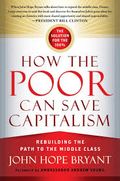Armstrong Williams | 1/29/2015, 12:42 p.m.
On this recent anniversary of the birth of Dr. Martin Luther King, his legacy is in sure hands. His youngest daughter, Pastor Bernice King, has taken over leadership of the King Center in Atlanta and is already doing great things. Notably, she has spent time in Ferguson, Mo., working with the youth in that community to channel their rage and frustration over the turmoil surrounding the Michael Brown shooting into positive action. Her brilliant work continues the process constructive engagement begun by her father, as he helped channel Black rage over social marginalization into a movement that fundamentally transformed America.
But Bernice King’s work needs to be viewed within the context of King’s overall message, or it might fall short of its intended impact. While a major thrust of King’s movement was to eradicate legal barriers to full participation in the American enterprise, his push for economic empowerment has been largely ignored, much to the detriment of those in whose name he fought and died.
When King went to Washington, D.C., to deliver his most famous “I Have a Dream” speech on the mall, he started out by decrying “the manacles of segregation and the chains of discrimination.” Most of the push for civil rights since his passing has focused on eradicating discrimination and challenging the social stigma of racism, but in the very next sentence, King lamented the economic dislocation of Black America, calling it “a lonely island of poverty in the midst of a vast ocean of material prosperity.” Addressing the economic challenges of Black America was just as essential to King as the social challenges. In fact, they were inseparable.
Later in his ‘I Have a Dream” speech, King continued to hit home on the theme of economic justice. “In a sense,” he said, “we have come to our nation’s capital to cash a check … a check which has come back marked ‘insufficient funds.’” This analogy is as apropos today as it was in 1963. No American today is denied the right to vote or forced by law to attend segregated schools or refused a seat at a lunch counter, and yet dire economic challenges remain. Unemployment among Black males is at an all-time high. The great wealth disparity between Black and white households remains intransigent. And so one wonders, what good is social equality without economic means? What’s the use of having the right to sit at a lunch counter if one can’t afford to pay for a meal?
It is precisely these issues that the brilliant public intellectual and social entrepreneur John Hope Bryant addresses in his new book, “How the Poor Can Save Capitalism.” In the book, Bryant highlights the irony that the primary driver of American capitalism is the consumer spending of the poor and middle class. He chronicles the problem for capitalism when the poor are so disenfranchised that they cannot even get access to the basic tools of financial literacy and citizenship. He addresses some of the root causes then begins to chart a way forward. He discusses issues of financial literacy designed to teach people how to improve their credit and build a wealth consciousness. He also points out some of the pernicious consequences of a poverty mindset, including the pathological behaviors that can result from a lack of hope.
 John Hope Bryant is the Founder, Chairman and CEO of Operation HOPE and Bryant Group Companies, Inc. Magazine/CEO READ bestselling business author of LOVE LEADERSHIP: The New Way to Lead in a Fear-Based World (Jossey-Bass). His newest bestselling book is How The Poor Can Save Capitalism (Berrett Koehler Publishing).
John Hope Bryant is the Founder, Chairman and CEO of Operation HOPE and Bryant Group Companies, Inc. Magazine/CEO READ bestselling business author of LOVE LEADERSHIP: The New Way to Lead in a Fear-Based World (Jossey-Bass). His newest bestselling book is How The Poor Can Save Capitalism (Berrett Koehler Publishing).
Bryant is a Member of the U.S. President's Advisory Council on Financial Capability for Young Americans, and co-chair for Project 5117, which is a plan for the rebirth of underserved America.
Bryant is the only bestselling author on economics who is also African-American.
Credit: A special thanks to Architects Of Group Genius, which produced the HOPE Doctrine on Poverty movie on a pro-bono basis for Operation HOPE.
Follow John Hope Bryant on LinkedIn Influencers here.
Posted by Natasha Eldridge, Office of the Chairman

